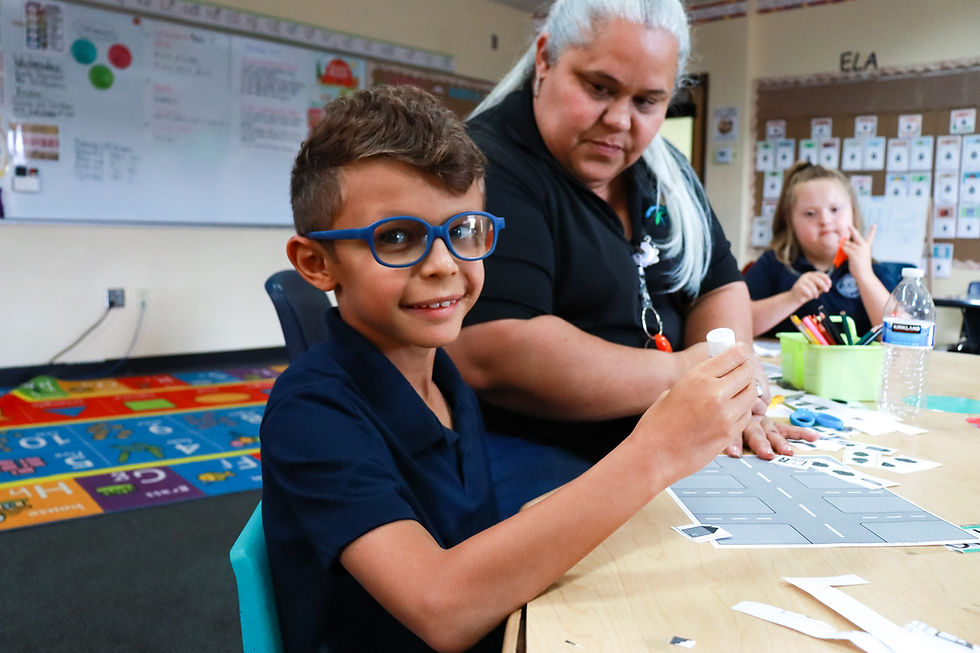The Relationship Month
- UCP OF CENTRAL FLORIDA

- Jan 30, 2024
- 3 min read
Updated: Feb 6, 2024
Written by: Wendy Thomson Director of Family & Child Support Services

With Valentine's Day around the corner, February is known as The Relationship Month. For kids, it’s candy and hearts but for adults, it can get complicated. As parents, your role in fostering positive and healthy connections sets the foundation for your children's future relationships. Creating and maintaining healthy relationships is a crucial aspect of life. Let’s explore some ways to know if you are in a healthy personal relationship:
1. Trust: Trust is the foundation of a healthy relationship. Be dependable, keep your promises, and maintain open and honest communication. Trust grows over time through consistent and honest behavior which will build the emotional safety needed in a healthy relationship.
2. Conflict Resolution: Conflicts are inevitable in any relationship, but how they are handled makes all the difference. Model healthy conflict resolution by calmly discussing disagreements and finding compromises. Approach disagreements with a solution-oriented mindset. Focus on the issue at hand, avoid blaming, and work together to find compromises that benefit both parties.
3. Appreciation: Show gratitude for the little things not just big acts. Regularly express appreciation for your partner and the positive aspects of your relationship. Gratitude fosters a positive atmosphere and reinforces the value you place on each other.
4. Communication: Communication is the cornerstone of any healthy relationship. Encouraging open and honest communication within your relationships creates a safe place where everyone can feel fully understood and heard. When your partner is speaking, give them your full attention. Avoid interrupting and genuinely try to understand their point of view. Reflecting on what they have said before responding shows that you value their input.
5. Empathy: Empathy helps create supportive and compassionate connections. Acknowledge and validate your partner's feelings and demonstrate that you care about their experiences. People need emotional support during both challenging and joyous times. You don't have to solve the problem, just be there to listen and offer support.
6. Respect & Boundaries: Establishing and respecting boundaries is essential for maintaining healthy relationships. Value your partner's time and feelings by really listening to what they need and not forcing your opinion. Active respect goes beyond a passive acknowledgment of someone's worth; it involves actively demonstrating consideration and esteem for the other person.
7. Flexibility: Relationships evolve, and individuals grow. Embrace change and adapt to the evolving dynamics of your relationship. Recognize that you both bring different perspectives, experiences, and strengths to the relationship. Celebrate and learn from these differences rather than seeing them as obstacles.
8. Foster Independence: While a strong connection is important, it's equally crucial to maintain individual identities and interests. Maintain a sense of independence by taking care of yourself physically, emotionally, and mentally. Everyone needs space to pursue personal interests and maintain a sense of individuality.
Remember that healthy relationships require ongoing effort and commitment from both parties. By incorporating these tips into your approach to relationships, you can contribute to the development of strong, fulfilling connections with others. If you are in a relationship that is unsafe and you want a safe, free, confidential space to talk it through, please reach out to your campus Clinical Counselors. We are here to help your child and family find health and happiness. Your physical and emotional safety always comes first, and we are here to support you through any challenges you may have.




Comments